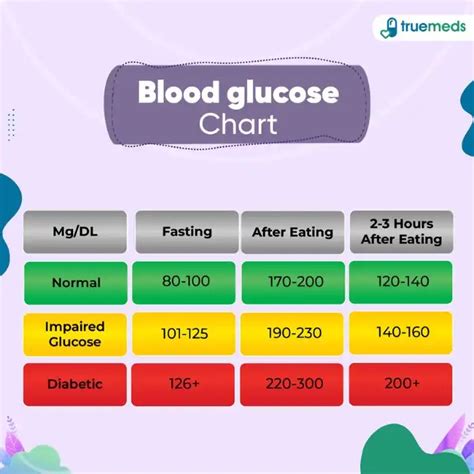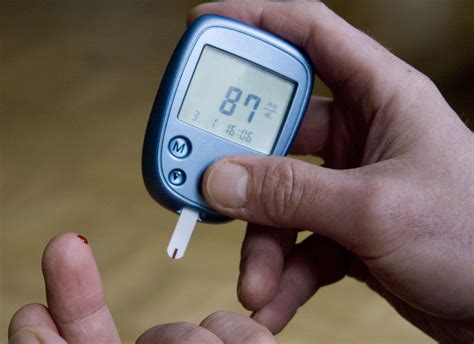Intro
Discover 5 ways to maintain normal blood sugar levels, managing glucose, insulin sensitivity, and diabetes prevention through healthy diets, exercise, and lifestyle changes.
Maintaining normal blood sugar levels is crucial for overall health and well-being. Blood sugar, also known as glucose, is the primary source of energy for the body's cells. When blood sugar levels are within the normal range, the body functions optimally, and the risk of developing chronic diseases such as diabetes, heart disease, and stroke is reduced. In this article, we will explore the importance of maintaining normal blood sugar levels and provide 5 ways to achieve and maintain healthy blood sugar levels.
The body's ability to regulate blood sugar levels is a complex process that involves the pancreas, liver, and other organs. When we eat, our body breaks down carbohydrates into glucose, which is then absorbed into the bloodstream. The pancreas releases insulin, a hormone that helps cells absorb glucose from the blood, thereby reducing blood sugar levels. On the other hand, when blood sugar levels drop, the pancreas releases glucagon, a hormone that stimulates the liver to release stored glucose into the bloodstream, thereby increasing blood sugar levels.
Maintaining normal blood sugar levels is essential for preventing chronic diseases. When blood sugar levels are consistently high, it can lead to insulin resistance, a condition in which the body's cells become less responsive to insulin. Insulin resistance can increase the risk of developing type 2 diabetes, heart disease, and stroke. Additionally, high blood sugar levels can damage blood vessels, nerves, and organs, such as the kidneys and eyes, leading to complications such as kidney disease, nerve damage, and blindness.
Understanding Normal Blood Sugar Levels

Normal blood sugar levels vary throughout the day, depending on factors such as food intake, physical activity, and sleep. Generally, normal blood sugar levels are between 70 and 140 milligrams per deciliter (mg/dL) after eating and less than 100 mg/dL after fasting. The American Diabetes Association recommends the following blood sugar targets: before meals, 70-130 mg/dL; after meals, less than 180 mg/dL; and at bedtime, 100-140 mg/dL.
Factors That Affect Blood Sugar Levels
Several factors can affect blood sugar levels, including diet, physical activity, stress, and certain medications. A diet high in refined carbohydrates, sugar, and saturated fats can increase blood sugar levels, while a diet rich in whole grains, fruits, and vegetables can help regulate blood sugar levels. Regular physical activity, such as walking, jogging, or cycling, can also improve insulin sensitivity and reduce blood sugar levels.5 Ways to Maintain Normal Blood Sugar Levels

Maintaining normal blood sugar levels requires a combination of healthy lifestyle habits and, in some cases, medication. Here are 5 ways to maintain normal blood sugar levels:
- Eat a Balanced Diet: A diet rich in whole grains, fruits, vegetables, and lean protein can help regulate blood sugar levels. Include foods that are low in glycemic index, such as whole wheat bread, brown rice, and non-starchy vegetables, in your diet. Avoid foods that are high in added sugars, saturated fats, and refined carbohydrates.
- Stay Hydrated: Drinking plenty of water can help regulate blood sugar levels by improving insulin sensitivity and reducing inflammation. Aim to drink at least 8 cups (64 ounces) of water per day.
- Exercise Regularly: Regular physical activity can improve insulin sensitivity and reduce blood sugar levels. Aim for at least 150 minutes of moderate-intensity aerobic exercise, or 75 minutes of vigorous-intensity aerobic exercise, or a combination of both, per week.
- Manage Stress: Chronic stress can raise blood sugar levels by stimulating the release of stress hormones, such as cortisol and adrenaline. Practice stress-reducing techniques, such as meditation, yoga, or deep breathing exercises, to help manage stress.
- Get Enough Sleep: Poor sleep can disrupt blood sugar regulation and increase the risk of chronic diseases. Aim for 7-8 hours of sleep per night and establish a consistent sleep schedule.
Benefits of Maintaining Normal Blood Sugar Levels
Maintaining normal blood sugar levels can have numerous health benefits, including:- Reducing the risk of chronic diseases, such as diabetes, heart disease, and stroke
- Improving energy levels and mental clarity
- Supporting weight loss and weight management
- Reducing inflammation and oxidative stress
- Improving skin, hair, and nail health
Monitoring Blood Sugar Levels

Monitoring blood sugar levels is essential for maintaining normal blood sugar levels. There are several ways to monitor blood sugar levels, including:
- Fasting blood sugar test: measures blood sugar levels after an overnight fast
- Postprandial blood sugar test: measures blood sugar levels after eating
- Random blood sugar test: measures blood sugar levels at any time of the day
- Continuous glucose monitoring (CGM): measures blood sugar levels throughout the day
Common Mistakes to Avoid
When monitoring blood sugar levels, it's essential to avoid common mistakes, such as:- Not testing blood sugar levels regularly
- Not using a calibrated glucose meter
- Not recording blood sugar results
- Not adjusting medication or diet based on blood sugar results
Conclusion and Next Steps

In conclusion, maintaining normal blood sugar levels is crucial for overall health and well-being. By following the 5 ways outlined in this article, individuals can reduce their risk of chronic diseases and improve their quality of life. Remember to monitor blood sugar levels regularly, avoid common mistakes, and make adjustments to diet and medication as needed.
We invite you to share your thoughts and experiences on maintaining normal blood sugar levels in the comments section below. If you have any questions or concerns, please don't hesitate to reach out. Share this article with your friends and family to help them understand the importance of maintaining normal blood sugar levels.
What are the symptoms of high blood sugar levels?
+Symptoms of high blood sugar levels include increased thirst and urination, blurred vision, fatigue, and slow healing of cuts and wounds.
How often should I monitor my blood sugar levels?
+The frequency of monitoring blood sugar levels depends on individual factors, such as diet, physical activity, and medication. Generally, it's recommended to monitor blood sugar levels at least 2-3 times per day.
Can I maintain normal blood sugar levels without medication?
+Yes, it's possible to maintain normal blood sugar levels without medication by following a healthy diet, exercising regularly, and managing stress. However, it's essential to consult with a healthcare provider to determine the best course of treatment.
